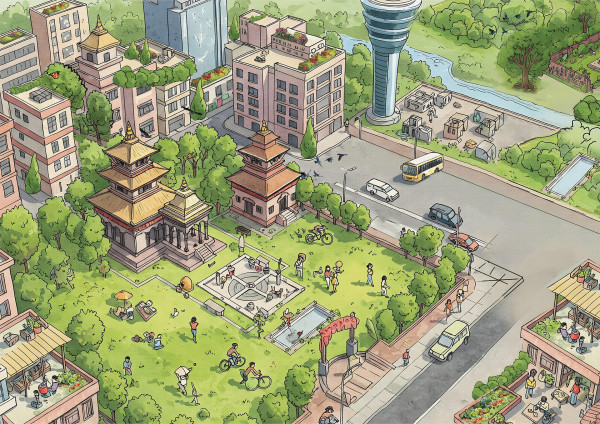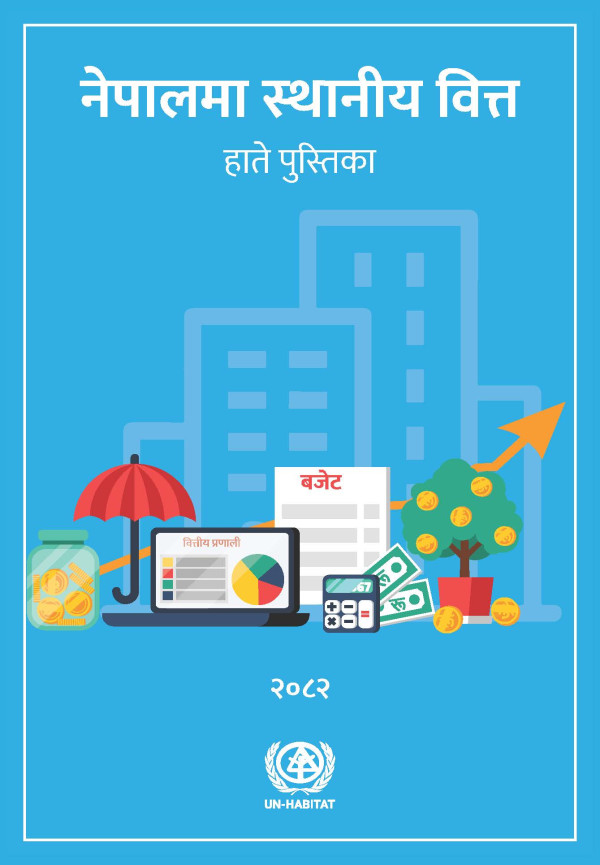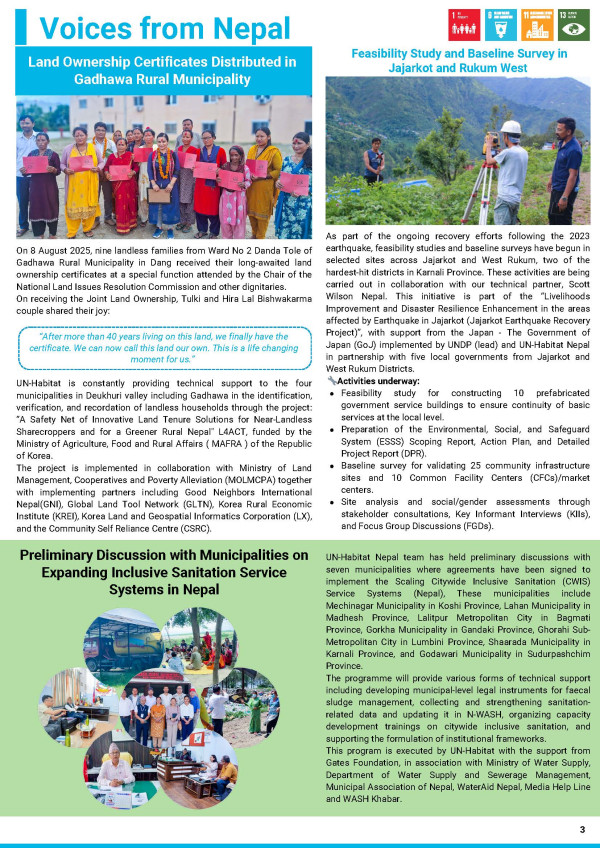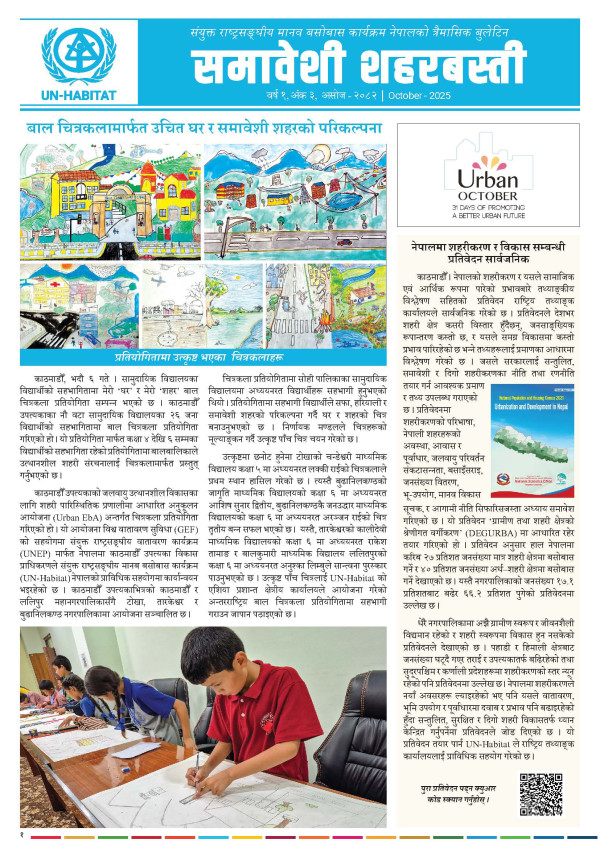World Habitat Day 2011 celebrated in Nepal
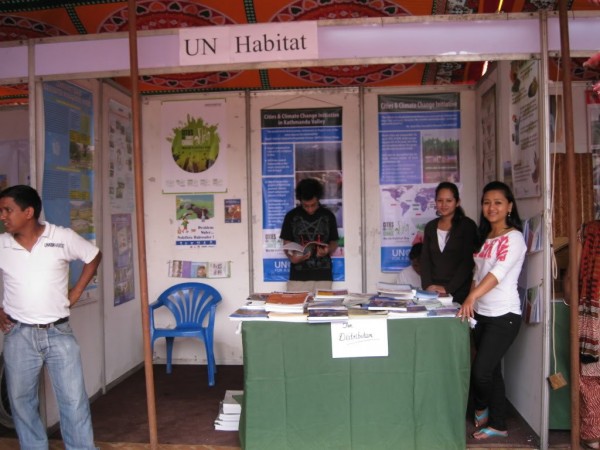
Department of Urban Development and Building Construction (DUDBC), UN Habitat and other stakeholders jointly organized the workshop on Cities and Climate Change on the occasion of the World Habitat Day 2011 in Kathmandu on 26 September 2011. Minister for Physical Planning and Works Hridesh Tripathy inaugurated the workshop and make public Urban Environment Management Guideline 2066 and the Urban Development bulletin World Habitat Day especial edition in the program. Minister Tripathy stressed on the need to manage urbanization to mitigate the effects of climate change. Speaking at a program, Minister Tripathy said, “Urban population is growing due to availability of facilities and opportunities in the urban, but it lacks proper management.” He added, “Climate change is affecting water resources, therefore, along with increasing urbanization, people should also focus on mitigating the effects of climate change.” He said all Nepalese had to maintain economic discipline and integrity to contribute to the country’s development. Tulasi Prasad Sitaula, MoPPW secretary, said 20 per cent Nepalese live in urban areas and the trend of migrating in the urban area is increasing. “Along with management of basic infrastructure and facilities, we should also pay attention to mitigating the effects of climate change,” Sitaula said. Kishor Thapa, secretary, Election Commission, said, “Along with data and figures publicized by foreign experts and organizations, we should also conduct research to mitigate effects of climate change". "The impact of climate change is directly linked with the water resources, so we could mitigate the adverse impact of climate change with the proper water resources management" he advised. Mahendra Subba, Director-General, DUDBC, said Nepal was witnessing the effects of climate change, adding, “The government had launched various programs to minimize the impacts caused by rapid urbanization in Nepal.” Bhusan Tuladhar, South Asia Regional Technical Adviser at UN-Habitat, said, "Kathmandu Valley’s temperature is increasing faster than global and national average. Kathmandu is vulnerable to climate change, mainly because of rapid urbanization, poor urban planning and management." He added “Activities in urban areas are contributing to the emission of greenhouse gases and increasing the effects of climate change, therefore we need to launch environment preservation programs.” He presented the Preliminary Findings of Vulnerability Assessment & Adaptation Planning in Kathmandu Valley in the program. He shared adaptation measures on thematic area of Water and Sanitation, Settlements & Infrastructure, Climate-induced Disasters, Public Health, Agriculture & Forests. He suggested "The adaptation measures need to focus on integrated water resource management and pro-poor urban planning and management and capacity of local governments need to be enhanced on climate change." Mr. Girija Prasad Gorkhali, Deputy Director-General, DUDBC, said "Managed Urban settlements assist to mitigate the adverse impacts of climate change, so the green technology should be incorporate in the urban development and shelter programs. Mr. Jibgar Joshi, President, Regional & Urban Planners Society of Nepal said, "We have to respond to the adverse impacts due to climate change through appropriate adaptation and mitigation measures in the towns and cities." He added "The climate change impacts should mitigate through the expansion of city in new area, urban agriculture, use of public vehicles, green technology buildings. Inter-school art competition on City and Climate Change and exhibition on Green Building Technology are also carried out on the occasion of the World Habitat Day 2011.


